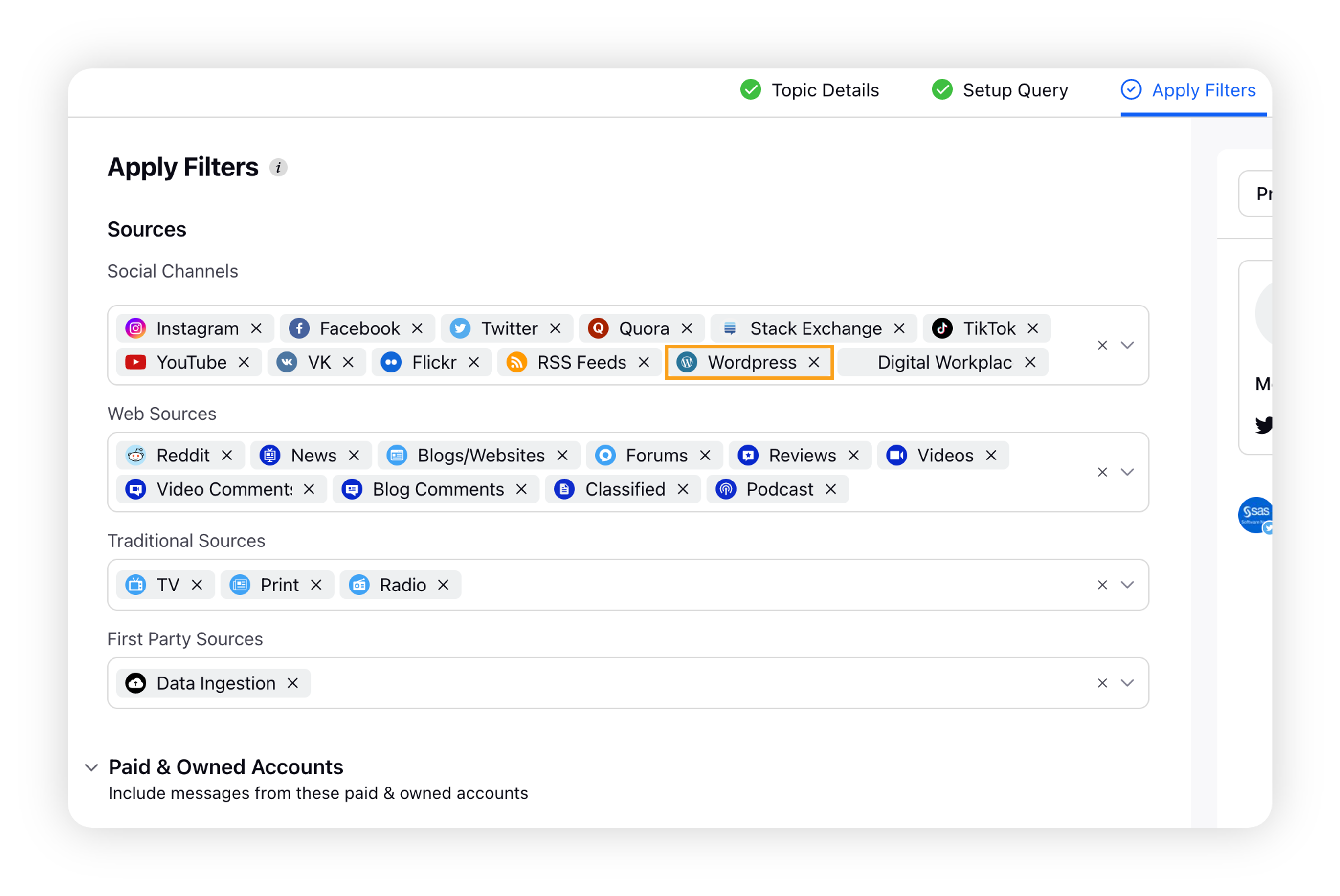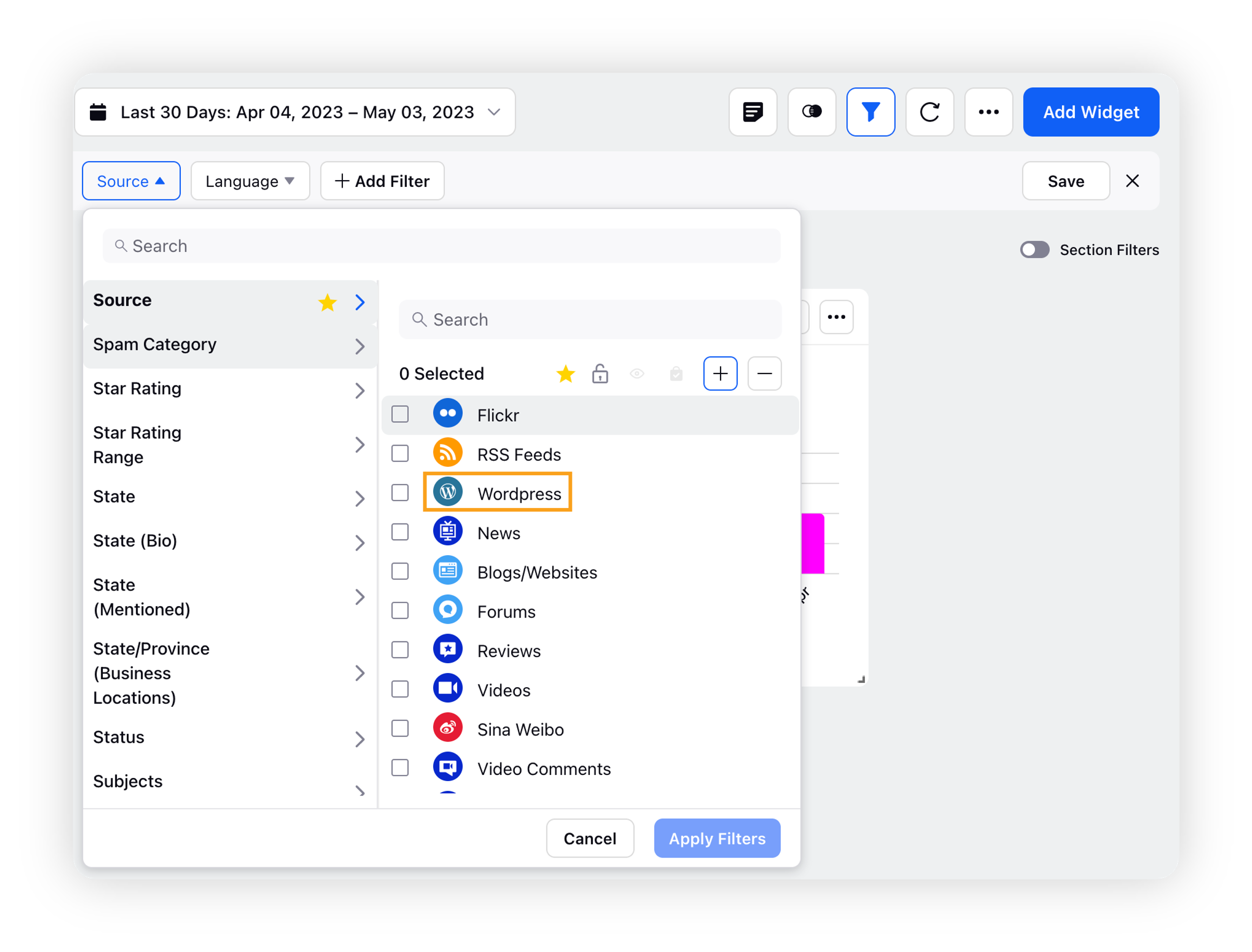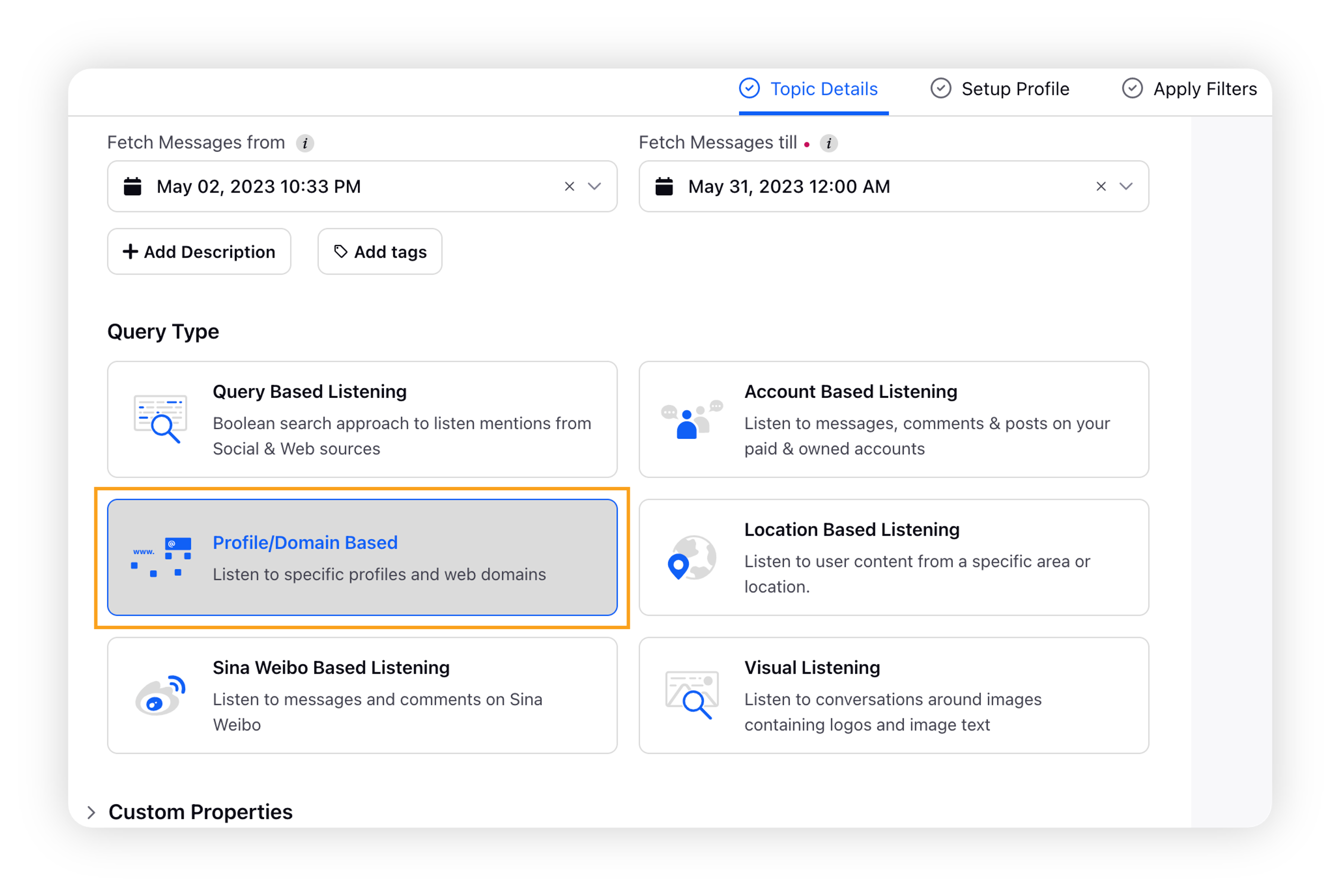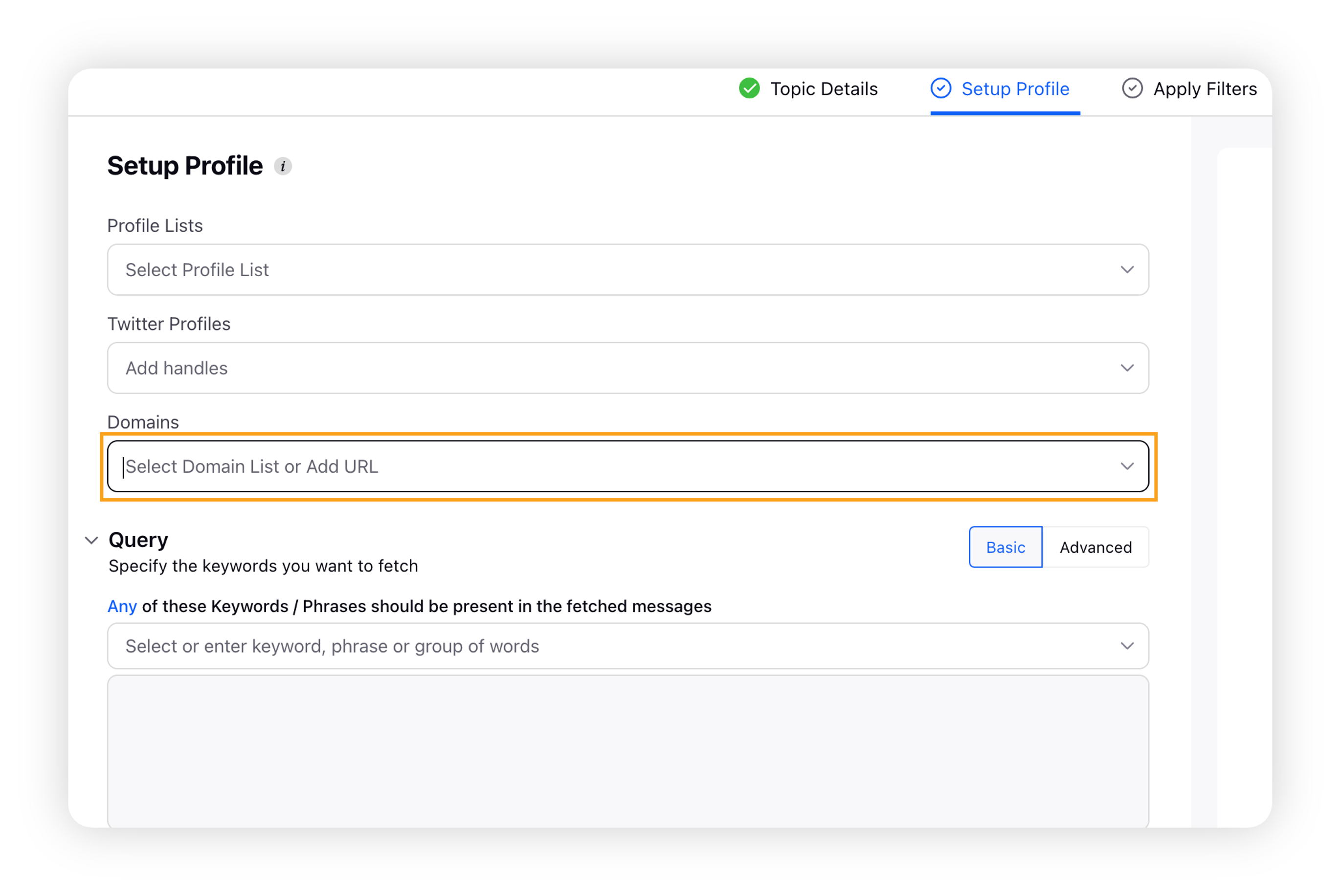WordPress as a Listening source
Updated
By adding WordPress as a Listening Source, you can listen to and learn from WordPress data in real-time.
WordPress is a content management system with a huge number of available plugins, widgets, and themes. One of the most popular content management system solutions in use, WordPress is used by more than 45% of the top 10 million websites.
Sprinklr has access to the official WordPress APIs Firehose, a stream of all activities from WordPress. With its broad use case and reach, WordPress offers a unique opportunity for brands to listen to the web content types including more traditional mailing lists and Internet fora, media galleries, membership sites, learning management systems (LMS), and online stores.
WordPress source capabilities
Source: WordPress
Source of data: Official APIs Firehose
Coverage: Full firehose of both public & privately owned accounts data available
Latency: 1-3 mins
Historical data: Q4 2020
Backfill support: Yes
Engagement Stats Refresh Rate: Not updated
Author/ Profile metadata details: Yes
Author Name, Author URL, Country available
Note: Profile Image and Profile Link URL are not supported via API.
AI-enriched data: Sentiment, Emotions, Language, Word cloud, Topic Cluster, Smart Themes Clustering, Smart Insights
Message type: WordPress Post and WordPress Comment
Media type: Blog and Comment
WordPress data entities in Social Listening
Data Entities | Type | Description |
Domain | Dimension | The top level domain name of a message's website of origin. |
Domain Authority | Metric | Domain Authority (DA) is a search engine ranking score developed by Moz that predicts how likely a website is to rank on search engine result pages (SERPs). A Domain Authority score ranges from 1 to 100, with higher scores corresponding to a greater likelihood of ranking. |
Distinct Domains | Metric | Distinct domains count from which mentions coming in |
Moz Rank | Metric | Moz Rank of the domain of this message source. Moz Rank will be in the range of 0 to 10. |
Moz External Links | Metric | Moz External Links gives the number of external links to the domain of the source website of the message. |
Moz Spam Score | Metric | Moz Spam Score is a metric that indicates how likely a website is to be penalized by the search engines as a site that provides low value to searchers, as measured by the ratios of content to code, content to external links, external links to internal links, and several other factors. The Spam Score will be in the range of 0 to 18. Higher Spam Score implies higher spam content. |
Alexa Page Views | Metric | Pageviews are the total number of Alexa user URL requests for a site. Note that the pageviews are not unique. Note: As per the new calculation logic updates we have made in the Alexa Page View metrics, you will get the exact values sent by the Alexa team as is without any modifications.
|
Alexa Rank | Metric | A relative measure of global popularity based on unique visitor and pageviews metrics from the past 3 months. Note that Country ranks are similar but are based on metrics for a specific country from the past 1 month. |
Alexa Reach | Metric | Alexa Reach is an Alexa Web Search metric that measures the number of people who have the Alexa toolbar or extension installed and who see your content. For example, if your website has a Reach Score of 5,000, this means that 5,000 people out of a sample of 1 million, who have the toolbar or extension installed, saw your site yesterday. Alexa Reach should not be used/compared in conjunction with other metrics as the logic for calculation is totally different. Note: As per the new calculation logic updates we have made in the Alexa Reach metric, you will get the exact values sent by the Alexa team as is without any modifications.
|
To fetch data from WordPress
Query-based Topic
In order to fetch data from WordPress, you need to create a Topic with WordPress as its source.
While creating or editing your Topic, click the Apply Filters tab, and select WordPress as one of the Web Sources.

You can also select Source: WordPress from the dashboard/widget filter.

To learn in detail about how to create a Topic, read Create a Topic in Topic Creation UI.
Domain-based Topic
In order to fetch data from Wordpress, you need to create a Domain-based Topic with Wordpress as its source.

You can add the domains/domain list in the Setup Profile tab of Topic builder.

While creating or editing your Topic, click the Apply Filters tab, and select WordPress as one of the Social Channels.
You can also select Source: WordPress from the dashboard/widget filter.
To backfill data from WordPress
Once the Topic is created/ updated, you can backfill the Topic going far back to Quarter 4 of 2020.
To know more about how to backfill data, check out Listening Backfill for Topics.
Limitations
Profile Image and Profile Link URL are not supported via API.
Location metadata is available only if domain specifies a country domain (.uk/ .jp), or if provided by vendor, location metadata for comments will be the same as that of post’s domain.